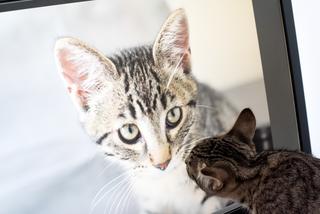Consciousness Goes Deeper Than You Think
Awareness can be part of it, but it’s much more than that.
Scientific American

An article on the neuroscience of infant consciousness, which attracted some interest a few years ago, asked: “When does your baby become conscious?” The premise, of course, was that babies aren’t born conscious but, instead, develop consciousness at some point. (According to the article, it is about five months of age). Yet, it is hard to think that there is nothing it feels like to be a newborn.
Newborns clearly seem to experience their own bodies, environment, the presence of their parents, etcetera—albeit in an unreflective, present-oriented manner. And if it always feels like something to be a baby, then babies don’t become conscious. Instead, they are conscious from the get-go.
The problem is that, somewhat alarmingly, the word “consciousness” is often used in the literature as if it entailed or implied more than just the qualities of experience. Dijksterhuis and Nordgren, for instance, insisted that “it is very important to realize that attention is the key to distinguish between unconscious thought and conscious thought. Conscious thought is thought with attention.” This implies that if a thought escapes attention, then it is unconscious. But is the mere lack of attention enough to assert that a mental process lacks the qualities of experience? Couldn’t a process that escapes the focus of attention still feel like something?
[full article]
I use to care for newborns that were as young as "zero hours" old.
It was a blessing and intriguing to watch their eyes adjust to the world of lights and sound.
Then the older one's, those who were days old, would lay cradled in my arms and I'd watch their face as they gazed about the room. Eyes wide, they'd crinkle up now and then, and little mouths would move as to smile, as it appeared they were watching something that these old eyes did not see.
Our Lord tells us we must become like little children so as to see the Kingdom of Heaven. (The Book of Matthew chapter 18)
Babies show us in their pure spontaneity what we have grown to take for granted.
I hope you enjoy this article. And if you are blessed to have a newborn to snuggle, please snuggle them one for me.
God bless the child. Amen
Awareness can be part of it, but it’s much more than that.
Scientific American
- Bernardo Kastrup

An article on the neuroscience of infant consciousness, which attracted some interest a few years ago, asked: “When does your baby become conscious?” The premise, of course, was that babies aren’t born conscious but, instead, develop consciousness at some point. (According to the article, it is about five months of age). Yet, it is hard to think that there is nothing it feels like to be a newborn.
Newborns clearly seem to experience their own bodies, environment, the presence of their parents, etcetera—albeit in an unreflective, present-oriented manner. And if it always feels like something to be a baby, then babies don’t become conscious. Instead, they are conscious from the get-go.
The problem is that, somewhat alarmingly, the word “consciousness” is often used in the literature as if it entailed or implied more than just the qualities of experience. Dijksterhuis and Nordgren, for instance, insisted that “it is very important to realize that attention is the key to distinguish between unconscious thought and conscious thought. Conscious thought is thought with attention.” This implies that if a thought escapes attention, then it is unconscious. But is the mere lack of attention enough to assert that a mental process lacks the qualities of experience? Couldn’t a process that escapes the focus of attention still feel like something?
[full article]
I use to care for newborns that were as young as "zero hours" old.
It was a blessing and intriguing to watch their eyes adjust to the world of lights and sound.
Then the older one's, those who were days old, would lay cradled in my arms and I'd watch their face as they gazed about the room. Eyes wide, they'd crinkle up now and then, and little mouths would move as to smile, as it appeared they were watching something that these old eyes did not see.
Our Lord tells us we must become like little children so as to see the Kingdom of Heaven. (The Book of Matthew chapter 18)
Babies show us in their pure spontaneity what we have grown to take for granted.
I hope you enjoy this article. And if you are blessed to have a newborn to snuggle, please snuggle them one for me.
God bless the child. Amen
-
1
- Show all
